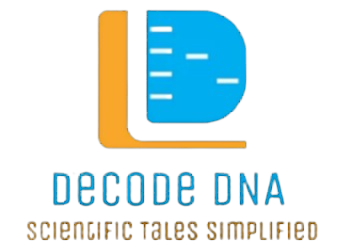As Ph. D scholars embark on their doctoral research journey, one of the most crucial early steps is deciding upon a compelling dissertation topic that aligns with their background and interests while addressing key knowledge gaps in their field. Their dissertation will represent the culmination of half a decade or more of intense study and experimentation, synthesizing their learnings and allowing them to meaningfully advance science.
Let’s delve deeper into some prime Ph.D dissertation domains along with the considerations for strategizing this integral topic selection process. We’ll also introduce Decode DNA’s dissertation writing services that can help strengthen your literature reviews, methodology, data analysis, discussions, and language quality as you compile your culminating thesis.
High-Impact Dissertation Topics Spanning Diverse Ph.D Research Domains
Agronomy and Environmental Biotechnology – As climate change cripples crop yields and food security while pollution threatens ecological stability, agronomy and biotech dissertations can drive positive change by enhancing agricultural productivity, soil health, and environmental monitoring.
Biochemistry – Studying the chemical processes powering life at a molecular level, biochemistry dissertation topics for Ph.D can entail investigating disease mechanisms, improving drug design, advancing renewable bioproducts, and optimizing industrial biocatalysts.
Bioinformatics – Applying computational approaches to understand complex biological data, bioinformatics doctoral dissertation topics might involve analyzing DNA sequences to enable personalized medicine, modelling protein interactions to inform drug targets, developing algorithms for robust omics data integration, or leveraging AI for molecular discovery.
Cell Biology – Harnessing cellular mechanisms underpinning growth, division, communication, and death, cell biology dissertations can entail exploring stem cell manipulation for regenerative medicine, elucidating cell cycle regulation defects in cancer, investigating intercellular signalling pathways in development, and improving in vitro models for toxicity screening.
Dairy and Poultry Science – Seeking to enhance productivity, sustainability, and animal welfare on farms, candidate dissertation topics in this domain span nutritional manipulation in feeds for higher yields, microbiome/probiotic interventions to improve gut health, innovative housing systems to reduce environmental footprints, and genomic selection for disease resistance.
Nutrition and Food Science – Exploring the biochemical foundations of nutrition, dissertations here can involve revealing bioactive compounds in functional foods, optimizing processing methods to retain nutrients, developing tools to assess nutritional status, reformulating products for enhanced quality and safety, or elucidating diet-microbiome-health connections.
Green Biotechnology – Leveraging biology for sustainability, green biotech dissertation topics for Ph. D could centre on engineering microbes or plants for agricultural improvement, environmental remediation, industrial chemistry, and smart materials production.
The above snapshot highlights the remarkable diversity of impactful dissertation research directions feasible across Ph. D program tracks in the Life Sciences. Whether aiming to advance healthcare through biomedical projects, protect biodiversity via environmental work, enhance food systems through agricultural research or drive bio-based innovation in synthetic biology and biotechnology – doctoral candidates have immense scope to craft fascinating projects that matter.
Strategizing Your Dissertation Topic Selection
While exciting doctoral dissertation topics abound across Ph. D research fields, strategically developing your specific proposal requires care and guidance from your graduate advisory team. Key pointers for this vital process include:
- Closely reviewing academic journals in your major to identify pressing research questions and knowledge gaps ripe for exploration based on the latest methods and technologies now available.
- Aligning your skills, lab capabilities, theoretical training, and quantitative coursework with potential dissertation topics to ensure you can rigorously address the concepts and techniques involved.
- Conferring extensively with your principal supervisor and advisory committee to receive feedback on initial ideas and direction – tap into their expertise!
- Refining smart, feasible research questions and objectives that will generate meaningful findings and push your subfield forward within your 4–5-year Ph. D timeline.
- Submitting thorough ethics clearance applications for any experiments involving animals, human subjects, or samples to obtain required approvals before starting.
By investing dedicated time into discovering your dissertation passion aligned with program competencies, current literature standing and expert guidance, you’ll propel impactful doctoral research.
The Assistance of Dissertation Writing Services
In addition to conducting ambitious lab work and computational analysis, sculpting your findings and interpretations into a robust dissertation is key. This writing process necessitates flawless formatting, articulate explanations of background context, meticulously detailed methodology descriptions enabling reproducibility, statistically sound data analysis, insightful discussion of implications, and accurate language use.
To significantly ease this complex Ph. D dissertation writing process while receiving expert feedback, Decode DNA offers Ph.D candidates specialized dissertation writing support on:
- Compiling outlines and chapter structures attuned to university guidelines.
- Perfecting all diagram, figure, and table formatting.
- Strengthening academic writing style for background and methodology flow.
- Providing technical critiques on results interpretation and connections to literature.
- Refining language, tone, sentence structure and fixing grammar.
- Guiding overall clarity, logic flow, readability, and polish.
By enlisting our dissertation writing specialists as they compile this capstone research deliverable, Ph. D scholars can heighten quality while reducing isolation and burnout during write-up – entering their thesis defence poised for success! With their doctorate powered by research leadership and communication prowess, a thrilling career awaits.
Pursuing groundbreaking science through your Ph.D? Let your dissertation become the springboard for discoveries that matter! The academic writing specialists at Decode DNA leverage decades of research expertise across scientific domains to provide invaluable dissertation support services for Ph.D candidates. Our technical know-how, writing proficiency and editing diligence ensure you submit a high-impact thesis underscoring your skills.
Visit https://decodedna.in/industrial-training-and-dissertations/ today to learn more about their dissertation writing guidance perfectly tailored to graduate students. With editors covering an array of subjects – from molecular biology, biotech and microbiology to environmental science, biophysics, and nutrition – we have you covered. Trust our dissertation writing services to elevate your research while easing your workflow.
Join the graduates who’ve benefited from our PhD-level writing services – your brilliant career lies ahead!


Pingback: 6 Reasons Why Dissertation Writing Services Are Powerful Game-Changers
Pingback: Top 100 Dissertation Topics for PhD to Help You Outperform
Pingback: Common Mistakes to Avoid While Writing A Thesis - Decode DNA